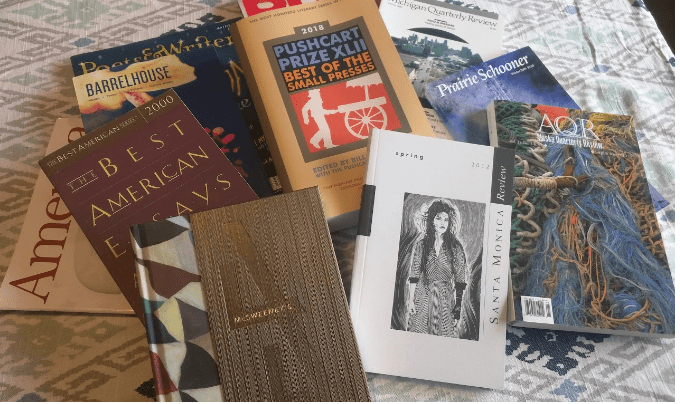


Things I learned at Lighthouse Lit Fest: Agents, scenes, where the embodiment is buried
Structure is not everything but it’s a lot
At the brilliant Jenny Shank memoir structure class, I was blessed to have an epiphany. Just like we’re taught to structure paragraphs to lead the reader, books, and especially memoirs, need structure to frame the character arc so that the reader isn’t lost.
Even no structure is a structure. See Carmen Maria Machado’s In the Dream House which pulls together a set of seemingly unrelated, non-chronological entries into a book that reverberates and carries a message of hope. Her structure of titled entries “Dream House as House in Iowa” or “Dream House as Haunted Mansion” are poetic but also are grounding the reader in places that let us both experience the protagonist’s journey into intimate partner abuse and carry the feeling of being under abuse by unmooring us, feeling as if we’re stuck in a dream (house). Brilliant.
Get embodied
Learning from the brilliant Leslie Jamison in “The Body Electric” underscored something I kind of already knew, well, sort of. Our exercise and readings helped me “stay behind the eyes” of my character. I have found doing all exercises from the point of view of our current project protagonist yields important, eminently usable insights. Here’s a free exercise for you: Sense History—make a list of five strong memories you associate with one of the senses. I’m not going to steal the rest of Leslie’s questions. I’m going to adapt that question with a follow up: How visual are you when you are writing? Would it help the reader to have your characters feel, smell, hear things more often than just see them?

Screenwriting for novelists/short story writers/memoir writers
I gained so much fucking inspiration and a renewed sense of fascination with scenework by studying under the kind, incredible Dean Bakopoulos. I have a sticky note for all of my projects from his class:
1/Does the scene escalate? Something has to increase as we go.
2/Don’t have too much internal dialogue.
3/Is the character under increasing pressure in her old life? Is there a “one-way gate” (Charles Baxter) in the “first act.” They can’t go back.
4/Where does the character make a decision that something is missing and go toward something different they desire (in small and thematic ways)?
Of course I learned much more. Like how to kick ass with who you are during a pitch rather than what you can do. I know that’s counterintuitive. Dean let us know that some (not all) success in a pitch can come from selling your background and experiences that make you the only damn person able to tell your story. That’s who people want to work with. That passion can fuel your career (that’s from me) and it’s okay to bring your whole self to your writing life and engagements. Fuck ‘em if they can’t take a joke (that’s me, too). Of course, read the room, though. Like at work, I need to be careful to do this.
Working with agents
At Lighthouse I went to Business Panels with agents and had a one-on-one and a small group pitch.
This is a hard one for me. I am not good with gatekeepers. I get bratty and resentful. BUT—only because I have secret immature dreams of being discovered without having to work that hard at it. Admit it. Sometimes you think who are these people with the keys to the kingdom of successful writers’ representation? I know that’s really stupid and I have had to do a lot of research on getting agented and how it’s a lightning in the bottle situation to get an agent with the sheer quantity of queries, etc, etc. but here are the things you CAN do:
1/Your homework—getting good business comps for books that did well that are similar to mine shows I give a shit about one of the agent’s end goals –sell the thing. It’s good manners.
2/Your pitch/query—needs to be to-the-point and contain solid signposts for the agent—word count, genre, who the F wants to read the thing.
3/Follow directions—from subject line to page count to email cut and paste vs. attachment, go to the agent’s site and figure out what they want.
4/Find a wish list if you can. Agents are interviewed a lot about their wish lists. These can help you tailor your query.
5/Try to get face-to-face. This used to irk me. But then I reframed. As a marketer and copywriter, what is the best way to build relationships with your “customer”? Face-to-face gives you a leg up in nearly every customer interaction. Why would an agent meeting be any different?
6/Ask the question: Can I send you pages? And be prepared for a “no”. Assuming you work hard, you have convinced the agent that your book is original, well-written and marketable, you’ve done your homework and approached the right agent and your in-person pitch was on point, you may very well get a “yes.”
Escalation is something I have to work on, because I tend to have a lot of filler chapters where my characters simply travel or talk, lol. Anyway, thanks for this post!
LikeLiked by 1 person
Yes! Me too! I like watching my characters do those things because they often surprise me with other things right in the middle. Thanks for reading — good vibes to you and your writing — send some to me too 🌝
LikeLike